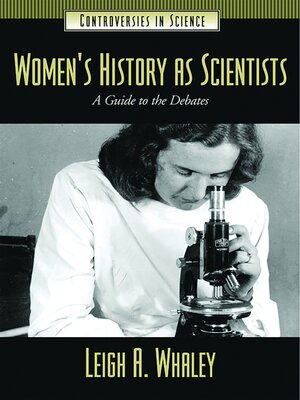Women's History as Scientists
ebook ∣ A Guide to the Debates · Controversies in Science
By Leigh Ann Whaley

Sign up to save your library
With an OverDrive account, you can save your favorite libraries for at-a-glance information about availability. Find out more about OverDrive accounts.
Find this title in Libby, the library reading app by OverDrive.



Search for a digital library with this title
Title found at these libraries:
| Library Name | Distance |
|---|---|
| Loading... |
A comprehensive historical review of the debates surrounding women's contributions and roles in science, with emphasis on women's access to education, training, and professional careers.
This remarkable work illuminates the debates surrounding women's involvement with science throughout history, covering a broad range of disciplines. Unlike a biographical compendium of great scientists, it examines the question posed throughout history: Are women capable of doing science? Whether people have the right to even ask the question is germane to the debate itself.
The coverage discusses Hypatia, the first female scientist about whom we have information; examines the contradictory behavior of the church in the treatment of women during the medieval era; and covers the 17th century debates over women's education. It examines women physicians, discusses feminism and science, and delves into why there are so few women in science—even today. The debate that began during the time of Plato and Aristotle continues to this day.
This remarkable work illuminates the debates surrounding women's involvement with science throughout history, covering a broad range of disciplines. Unlike a biographical compendium of great scientists, it examines the question posed throughout history: Are women capable of doing science? Whether people have the right to even ask the question is germane to the debate itself.
The coverage discusses Hypatia, the first female scientist about whom we have information; examines the contradictory behavior of the church in the treatment of women during the medieval era; and covers the 17th century debates over women's education. It examines women physicians, discusses feminism and science, and delves into why there are so few women in science—even today. The debate that began during the time of Plato and Aristotle continues to this day.







